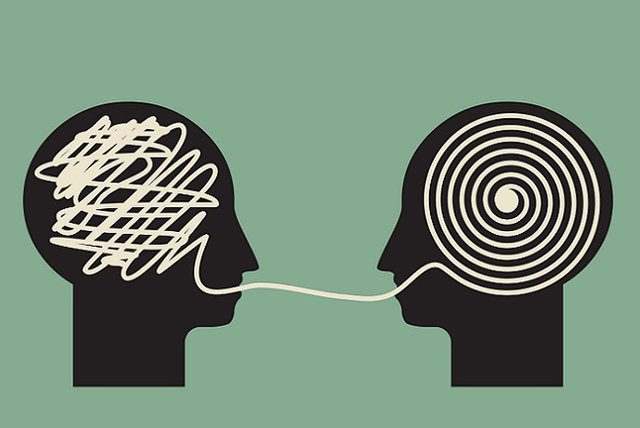I often have the sense that I’m a slightly different person in each of my languages—more assertive in English, more relaxed in French, more sentimental in Czech. Is it possible that, along with these differences, my moral compass also points in somewhat different directions depending on the language I’m using at the time?
In a 2014 paper led by Albert Costa, volunteers were presented with a moral dilemma known as the “trolley problem”

Costa and his colleagues found that posing the dilemma in a language that volunteers had learned as a foreign tongue dramatically increased their stated willingness to shove the sacrificial person off the footbridge, from fewer than 20% of respondents working in their native language to about 50% of those using the foreign one. (Both native Spanish- and English-speakers were included, with English and Spanish as their respective foreign languages; the results were the same for both groups, showing that the effect was about using a foreign language, and not about which particular language—English or Spanish—was used.)
Using a very different experimental setup, Janet Geipel and her colleagues also found that using a foreign language shifted their participants’ moral verdicts. In their study, volunteers read descriptions of acts that appeared to harm no one, but that many people find morally reprehensible—for example, stories in which siblings enjoyed entirely consensual and safe sex, or someone cooked and ate his dog after it had been killed by a car. Those who read the stories in a foreign language (either English or Italian) judged these actions to be less wrong than those who read them in their native tongue.

According to one explanation, such judgments involve two separate and competing modes of thinking—one of these, a quick, gut-level “feeling,” and the other, careful deliberation about the greatest good for the greatest number. When we use a foreign language, we unconsciously sink into the more deliberate mode simply because the effort of operating in our non-native language cues our cognitive system to prepare for strenuous activity. This may seem paradoxical, but is in line with findings that reading math problems in a hard-to-read font makes people less likely to make careless mistakes (although these results have proven difficult to replicate).
An alternative explanation is that differences arise between native and foreign tongues because our childhood languages vibrate with greater emotional intensity than do those learned in more academic settings. As a result, moral judgments made in a foreign language are less laden with the emotional reactions that surface when we use a language learned in childhood.

The balance is tipped even further toward this explanation by a recent study published in the journal Cognition. This new research involved scenarios in which good intentions led to bad outcomes (someone gives a homeless person a new jacket, only to have the poor man beat up by others who believe he has stolen it) or good outcomes occurred despite dubious motives (a couple adopts a disabled child to receive money from the state). Reading these in a foreign language rather than a native language led participants to place greater weight on outcomes and less weight on intentions in making moral judgments. These results clash with the notion that using a foreign language makes people think more deeply, because other research has shown that careful reflection makes people think more about the intentions that underlie people’s actions rather than less.
But the results do mesh with the idea that when using a foreign language, muted emotional responses—less sympathy for those with noble intentions, less outrage for those with nefarious motives—diminished the impact of intentions. This explanation is bolstered by findings that patients with brain damage to the ventromedial prefrontal cortex, an area that is involved in emotional responding, showed a similar pattern of responses, with outcomes privileged over intentions.
MY OPINION
I think the difficulty for our brains to adapt to a foreign language results in us making immediate judgement and assumptions on things unless thought through deeply. Furthermore our emotional response from a statement said in a foreign language may not have as large of a impact on us as compared to a statement made in our native language.
It does raise some interesting questions though,
How do we assess the morality of a Multi lingual?
Is there a language or medium that can truly allow us to express what we really think efficiently?
Or what is the closest language?
(AS TAKEN FROM THE FULL ARTICLE, ALL CREDIT GOES TO THE ORIGINAL AUTHOR http://www.scientificamerican.com/article/how-morality-changes-in-a-foreign-language/)